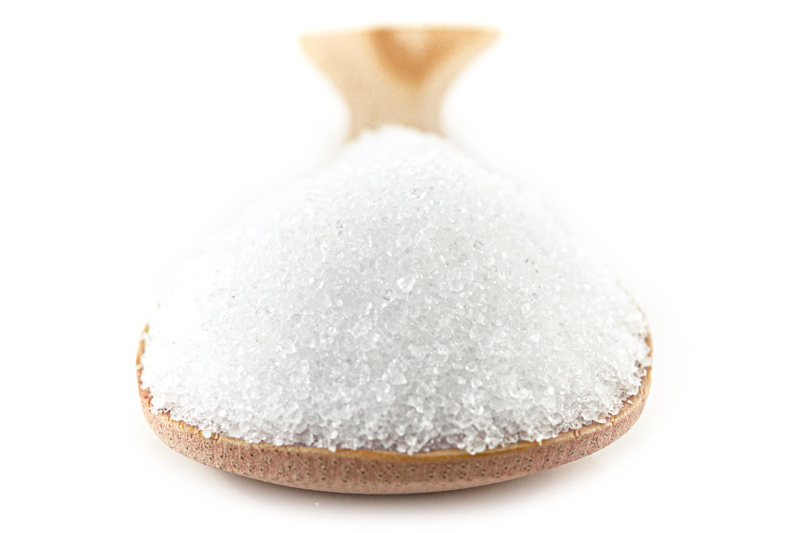Here’s Why Xylitol Is Completely Awesome
Xylitol is commonly used as a healthier substitute for sugar. But what is Xylitol? How is it made, and is it really better for us? What exactly are the health benefits of Xylitol?
Xylitol is a white, crystalline powder, identical in appearance, sweetness and taste to normal refined white cane sugar. However, it has 240 calories per 100 grams, contrasting very favourably with the 387 calories found in the same amount of cane sugar. It was first discovered by Emil Fischer, a German chemist, in 1891. It rose to prominence again during the Second World War, when sugar was in short supply.
As more and more people are waking up to the health dangers of cane sugar, and as rates of type 2 diabetes soar to a level twice what it was in 1996, Xylitol has massively increased in popularity, to an extent where the global market is approaching a worth of $1 billion.
So join us as we take a closer look at some amazing Xylitol facts….

It's completely natural and made from trees
The name ‘xylitol’ makes it sound like it was created by white-coated scientists in a laboratory – but in reality, this is a 100% natural product, commonly made from beech or birch trees growing in Scandinavia, or other vegetable sources. Xylitol also occurs naturally in many fruits and vegetables such as corn, raspberries, strawberries, cauliflower and mushrooms. It even occurs naturally in our bodies in small amounts! The commercial production of Xylitol involves a process whereby a solution is produced from the source material before this then undergoes a process of evaporation, crystallisation, centrifugation and drying.
You can use it just like sugar
Xylitol can, for the most part, be used exactly as you’d use regular sugar. It’s excellent sprinkled on your breakfast cereal or your morning grapefruit; it’s splendid stirred into tea or coffee, and it’s superb as part of a cake batter. However, there are a few differences: it won’t ‘set yeast off’ in the same way as normal sugar does when you add a teaspoon to a bread mix, and it won’t caramelise if you’re planning on making butterscotch or fudge, or roasting vegetables. You can make jam using Xylitol; however, it doesn’t have the same preservative qualities as regular sugar, so it won’t last indefinitely in a jar in your cupboard. It will be okay for up to a week in the fridge, or you can freeze it instead, in individual portions.
Xylitol has a very low glycemic index (GI) of 7, which is about the same as lettuce. This means it won’t spike your blood glucose levels, unlike regular white sugar, which has a relatively high glycemic index of 68, and is something diabetics should normally avoid. Low-GI diets are important in reducing the risk factors of developing Type 2 diabetes in the first place, as well as heart disease and other degenerative conditions. Xylitol is therefore an excellent choice for anyone wanting the taste of sugar but without the attendant spike in blood glucose.
It's a 'Sugar Alcohol' - but won't get you tipsy!
Xylitol is one of the ‘sugar alcohols’ along with sweeteners such as Isomalt, Erythritol, Sorbitol and Glycerol (glycerine). The word ‘alcohol’ used in this sense may be misleading to some – anyone scared they’ll get drunk from putting it on their cornflakes really needn’t worry! It simply means that it shares certain molecular similarities with other alcohols, and falls under the same chemical classification. It is not an intoxicant, and is generally considered acceptable by cultures and religions who shun alcoholic beverages.
It's actually good for your teeth!
When regular cane sugar is consumed, it interacts with dental plaque, the thin film of bacteria covering our teeth, to form acid. This then eats away at our tooth enamel, causing cavities which are disastrous for our dental health. This decay can lead to abscesses, making the removal of teeth necessary. Xylitol, on the other hand, does not cause acid, and actually reduces levels of decay-causing bacteria in saliva. A paper published in 1976 [1] A roundup of many research papers on Xylitol concluded that it actually works to prevent tooth cavities.[2]
Totally safe for humans - but watch out for your four-legged friend
Xylitol is safe and in many ways beneficial for human health. It enables people with diabetes to enjoy the taste and properties of regular white sugar without the health complications sugar wreaks on the body. But please watch out for the family dog – xylitol consumption triggers an insulin response in canines which causes severe hypoglycaemia, making their blood sugar levels plummet, which can lead to death. Many foods commonly eaten by humans are toxic to dogs, and this is definitely an example of a food you should never give to a dog. If Fido’s been a good boy, please stick to proper Dog Treats!








